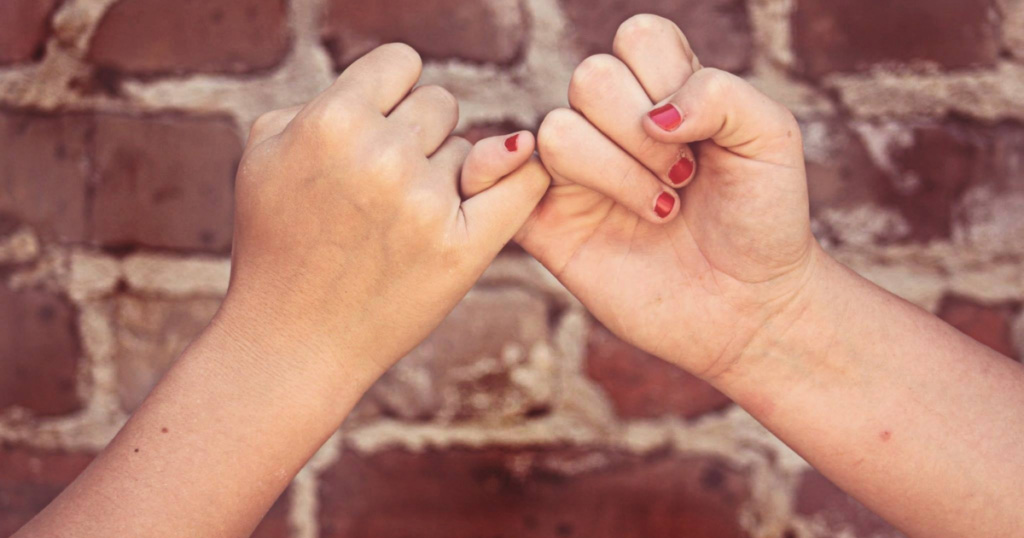Teaching Your Child The Invaluable Lesson of Being A Good Friend
Children, teenagers, and adults all need friends. So much so that friendship has been linked to long-term health and life expectancy! It is indeed a biological fact that humans thrive when in the company of others. Researchers have found that friendships are not just a perk of being emotionally capable and social beings, they also help us survive this often harsh world. In this Coach Red blog post, we will discuss the importance of having friends, and why we should teach our children to be loving and compassionate individuals.
A 2011 study demonstrated that social interaction isn’t just a part of what makes us human, it actually makes us feel good. Researchers found that when we talk to other people our brains release oxytocin–the stuff in our brains that makes us happy. In other words, friendship triggers the important parts of us that make us feel content. Human beings (of all ages) who have experienced isolation or minimal social interaction are more prone to develop depression and aggressive characteristics.
Making friends isn’t just about feeling happy–it also shapes our behaviors, personal traits, and language. You see, social interaction is very much a process of learning what it means to be compassionate, loving, and kind. It also teaches us how to be generous, less introverted, and reduces stress. We need friends to lean on for support, for outside perspectives, advice, and love.
This is why teaching your children how to be good friends is crucial to their behavioral development. It can also impact their future careers and relationships. Being a good friend makes you more likely to have healthy relationships, and being social makes you more likely to land a job. For these reasons and more, it is important to watch how your child interacts with their fellow friends. If you’re not always around, you can also ask their teachers how they perform in this area while they are in school.
Did you know there are ways you can help your child be the best friend they can be? Here are five steps to help teach your little one the importance of friendships.

As you study your child while they interact with other children, ask yourself some crucial questions:
- Is my child doing something that might discourage other kids from being his/her friend?
- Do they demonstrate proper manners?
- Do they tend to tattle on other kids?
- Do they show any interest in playing?
- Do they stay alone or migrate towards a group of kids?
- Are they so shy they refuse to approach others?
- Do they refuse to follow rules during games?
- Is it “their way or the highway”?
- Do they tease, insult, or ridicule?
- Are they mean on purpose?
- Are they too silly?
- Do they think they are the boss? I.e gives orders to other kids
- Do they apologize?
These are all great questions to ask yourself while you watch your child play—it can tell you a lot about what kind of friend they are, or will grow up to be.
- Make sure your child knows what it’s like to be a good friend. Remember that there are parts of their brain that haven’t fully developed, and they may need some navigation. Ask questions like, “How do you think a good friend behaves?” Or “Do you know someone who you think is a really good friend?” Follow up by asking them what they feel makes them a good friend. Do they share? Are they compassionate? Did they stand up for them on the playground?
- Lists help! As with most learning processes, writing ideas down can help your child articulate their thoughts on what it takes to be a good friend.
- Encourage your child to practice being a good friend. Writing down lists of ideas is great, but actually going out in the real world and following through is what makes all the difference. Ask your child what “good friend” trait they’d like to practice this week. A word of advice: role-playing is an effective way to help your child practice. If they feel more comfortable practicing with a stuffed animal, that’s also perfectly okay.
- Let them know when they do a great job of being a friend. We all need a little positive reinforcement here and there. This is especially important for kids during their developmental stages. Saying things like “That was really kind of you to share your toy truck with Adam” or “Inviting Leah to the party was a very kind gesture. Doesn’t it feel good to have made her happy?”
—
As always, if you need more information on how to enforce teamwork in your household, visit www.coachred1.com to schedule a FREE consultation. We will take you through the steps needed to raise happy, healthy, and compassionate children.
Facebook: https://www.facebook.com/CoachRedRochelleStrauss
Sign up for our monthly newsletter: https://bit.ly/red-news
Subscribe to our Youtube Channel: https://bit.ly/coachred
